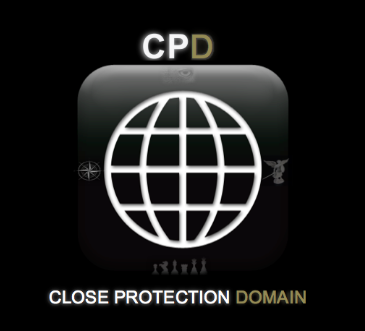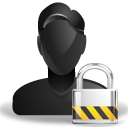Operators - Protection on the Internet
Page 1 of 1
 Operators - Protection on the Internet
Operators - Protection on the Internet

You have no doubt noticed that you can read this article without being logged in to
Close Protection Domain..This is called OSIF - Open Source Information.
There are over 100 forum sections on CPD. You are currently viewing the CP General Chat Section – intentionally left open to provide an overview to future members.
In this posting, I would like to address the use of the internet for Operators.
As an industry professional you regularly use the internet to search for employment and to network with fellow professionals. In fact some 80% of operators have found work at some stage of their career by using the internet as their primary job search tool.
However, with information technology advances and the emergence of networks connecting hundreds of millions of people worldwide, the need to use caution is absolutely essential.
Do be aware of the increased risk of using social networking sites:
http://www.microsoft.com/en-gb/security/online-privacy/social-networking.aspx
USe of the internet for sourcing jobs
Social Networking Sites

Facebook isn't really the place to look for employment.
It can be Ok as long as you remember to keep your profile private and only visible to people you know.
Finding employment depends on how many trusted contacts you have as companies don't exactly go looking on Facebook for operators.
The way to find employment on Facebook is by having a conversation with a contact who will let you know of a particular job that he knows of or he will provide a link to a job post somewhere and will tell you that such and such company is looking for an operator.
LinkedIn is a very good place to find employment.
Join the most groups that you can in order to gain valuable intelligence on the job scene.
There are some very good groups on LinkedIn with lots of job posts on.
Connect with professional operators and companies and remain professional at all times.
DO NOT harass people for employment or you will burn your chances of employment.
Make sure you add security to your LinkedIn profile so that not too much is out in the open.
You don't want any tom dick and harry knowing everything about you and your background when he types your name on google.
Same principle as Facebook and LinkedIn, as long as you know how to protect yourself on the internet Twitter can be a good source of intel.
Follow the most companies you can, follow recruitment agencies and you may receive a tweet one day that matches exactly what you are looking for.
- Doing your own research
By simply opening a Google page you can find a lot and go very far.
Type the search you want: "Marsec Job", "Close protection" "Maritime Security", "Surveillance", "Close protection employment"etc...
Play about with it and try many different searches.
Go to the top companies websites and go on the career pages.
The top companies never have a blank career page and there is always a job on one of their sites that will match what you are looking for.
-Security Forums
Forums can be a great source of intelligence, you can get advice on the job scene, meet other operators, view lots of current job vacancies, find information, and much more.
But make sure you choose the right forum as forums can be great but they need to be safe and you need to feel safe when you log on.
Do you really want to be on a forum amongst thousands of members you know nothing about?
How most forums work:
1/ You go on to the forum
2/ You register your details
3/ You receive a confirmation Link
4/ You are now a member. You can view all posts and communicate with all members.
Easy for an imposter with criminal or malicious intent to mingle with security specialists
How Close Protection Domain works:
1/ Once you register your details, your profile is manually activated after verification of the email registered and username.
2/ You receive an activation link and can now log on to the forum.
3/ Once you are on the forum, you can only view a few threads and the "How to become a verified CPD member" post.
4/ To view all topics, you need to get verified member status. All CPD members are vetted and you can read more about this once you register.
This ensures the forum remains secure and that high standards are maintained
Advertisements:
This type of ad can often be seen on other forums:
Hi guys, I am looking for 20 CPOs with Afghanistan or Iraq sandpit experience.
Task coming up in the next few days: Send CV urgently to: afghanjob@hotmail.com
It looks innocent enough, especially when posted by a long-standing member. But do you know who he is? Was he ever vetted by the forum moderator team? Does the forum administrator have his ID? The fact that the admin has his IP is no guarantee when an IP in Afghanistan can easily be changed into a British or US IP address.
You didn't think and you have now sent your CV to a hotmail or yahoo...
It could of course be genuine but we should all be aware of what could lie behind:
1/ The email address could belong to an individual who is part of a terrorist group. Terrorist cells are in every country and while you may feel safe in the UK or your own country, this individual now has access to your name, date of birth, home address, phone number and SIA licence number.
The fact that you were in Afghan or Iraq could be a factor – soldiers around the world have been targeted, most recently in France: http://en.wikipedia.org/wiki/Toulouse_and_Montauban_shootings
2/ Nigerian ID Theft Scams - AFP: Army CID spokesman Chris Grey said the scammers used information about real soldiers, including their names and ranks, and found photographs of soldiers online to create a false identity.
3/ The email address could belong to an individual building a fake ID using your information.
4/ CV harvesting
CAUTION
Don’t send Your CV to a Hotmail or Yahoo address unless you know who the person is.
Keep in mind due diligence: If a company doesn’t seem right, carry out the research prior to sending your CV. For optimal security, only send your CV to verified addresses with domain names on the end.
 Similar topics
Similar topics» Current Vacancies: Country Managers, Close Protection Team Leaders and Close Protection Operators
» EU officials: We were hacked during conference on Internet security in Azerbaijan
» Marsec Operators
» UK CP Operators working in the US
» The Operators- 14 Company
» EU officials: We were hacked during conference on Internet security in Azerbaijan
» Marsec Operators
» UK CP Operators working in the US
» The Operators- 14 Company
Page 1 of 1
Permissions in this forum:
You cannot reply to topics in this forum|
|
|

 Home
Home Register
Register Log in
Log in




» OSINT's books
» Hire Bodyguard in London
» Contact for work
» Updated CV
» Introduction
» Intersec 2017
» HLR/D-HLR Instructor Sweden
» CP SIA, MIRA Quaified